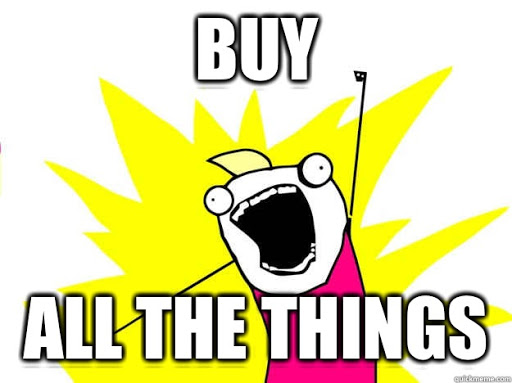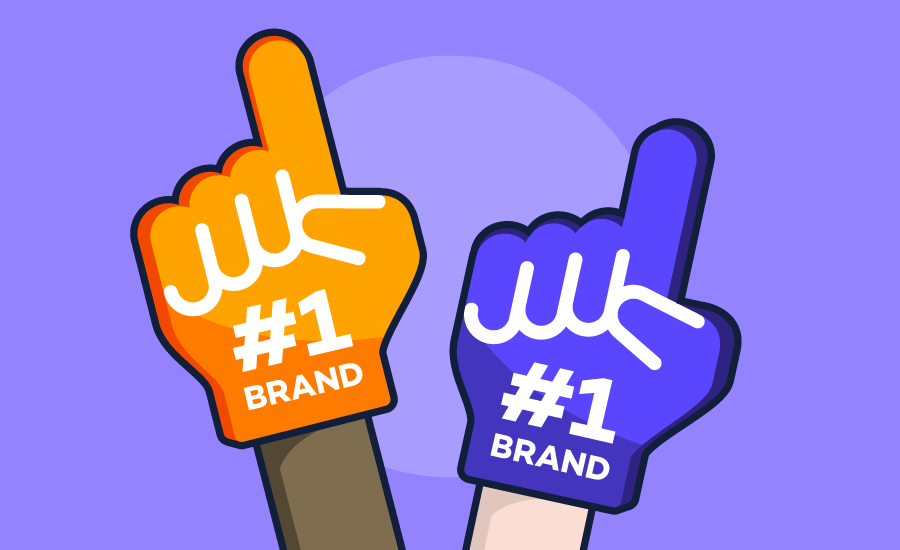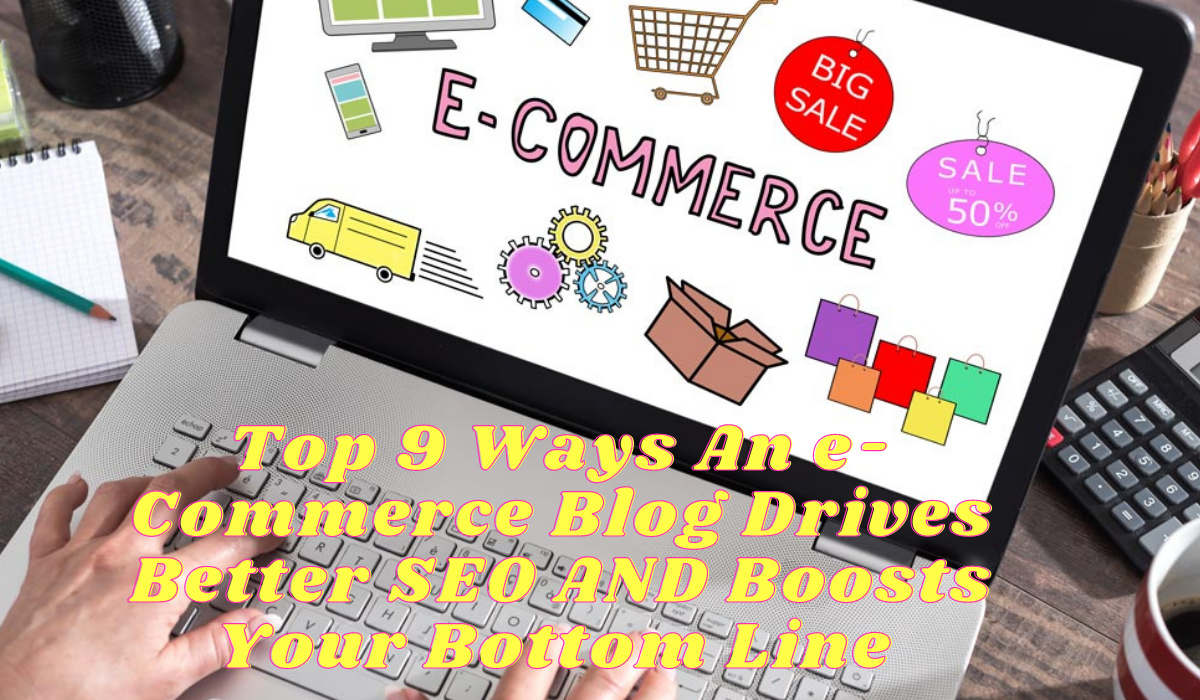SEO is important for a website operating in any niche, but in the increasingly important world of e-commerce, it’s more important than ever. As big bricks and mortar retail businesses who have never made online sales a priority were forced online due to the COVID-19 pandemic their brand clout, and bigger budgets, have made it even harder for smaller e-commerce retailers to stand out.
But not impossible. In fact, with the right products, the right website and effective social media and SEO campaigns with setting long-term SEO strategy, all kinds of smaller e-retailers are thriving. It’s a good time to get into e-commerce, as long as you have a plan. But should that plan include an e-commerce blog?
If you run an online-only company or have a brick and mortar business with a sales website, you may indeed wonder whether adding a blog to your e-commerce website is important for SEO or not. It’s an extra hassle in the minds of many retail business owners, and chances are you already have plenty of those.
However, even though your website’s primary objective is obviously to drive traffic to your products and make sales, there are lots of reasons why it is advisable to add a blog to your e-commerce site, especially for SEO.
Instant Easy SEO Boosts

Most retailers are savvy enough now to invest time and money in SEO for driving more traffic to their website for e-commerce, and a blog is one of the most powerful, low-cost ways to do so.
The first reason why it’s great? Often product descriptions are not text-heavy. They are dominated by images instead. The amount of content your retail website contains will be significantly increased by adding a blog to your e-commerce site.
The more content you have, the more often your website will be indexed by search engines, and the more potential customers will find their way to your website organically. For best results, incorporate trending keywords with your blog posts by performing good keyword research.
Instant boost number two is the fact that you will be able to build more backlinks to your site than you can by just sharing your products on social media. Social media can be great for engagement, but it’s terrible for backlinks.
A blog will allow you to build real, lasting backlinks, the kind that that search engines love. Backlinks are still at the heart of SEO, and the more, the better. An e-commerce blog is the easiest way to get them.
Instant boost number three revolves around keywords. No doubt you will do plenty of keyword research when it comes to your product descriptions, but as we just mentioned, those are likely to be light on text, and so you’ll need to use them very sparingly.
E-commerce blogs like Olio Lusso and Loxa Beauty, give you the opportunity to take those keywords and keep using them in a way that is natural and ideal for boosting organic SEO for your site as a whole.
A Blog Brands You As an Expert and Drives Better Customer Engagement

Many e-commerce websites use their blogs as a means to brand themselves as experts in their industry. Tips and tricks that your target audience is looking for, tutorials, and the latest breaking business news can be included in your blog posts. Every product has a use, so showcase yours often.
You don’t have to stick to text either. Multimedia blogs that include images and videos too are more engaging for readers, meaning that they will stick around longer. This decreases bounce rate, which helps your SEO.
Although you can add blog posts that include sales data, concentrate more on adding value to your clients for branding purposes. In this matter, Google Sheet alternatives can help streamline data analysis and presentation, allowing to focus on delivering value to clients through informative and user-centric blog content.
You can use your blog as a way to engage your customers on an ongoing basis, instead of starting a website your customers visit only while shopping. This can be done in a number of ways.
Although your e-commerce site obviously includes photos of the items you sell, your blog is an additional place in which you can use text and visuals to engage your customers. This may be a short video of how to assemble a product, an article about the various ways of using a product, or non-product-related text, images and videos that are still important to your target audience.
For example, you can share funny pet videos and photos if you sell pet supplies. Or makeup tutorials if you sell cosmetics, recipes if you sell food items, DIY tutorials if you sell decor items and so on.
But there is another SEO based reason that branding yourself as an expert is so important. Increasingly your E.A.T rating – expertise authority and trust – is as important to Google as it is to your customers, so the more authoritative and useful you seem, the higher your site will appear in the SERPs.
It’s a Great Venue For Retail Business News
Your new e-commerce blog will be an excellent place for your audience to discover your latest news and updates, even if you use opt-in email marketing for your announcements, or have a section on your e-commerce website where you post new product notifications. This could be something you would like to share about new items, answers to your most frequently asked questions, seasonal promotions, or something new about your company. In addition, your e-commerce blog can also serve as a platform to educate your audience about the efficiency of using cutting-edge inventory management software to streamline your operations and enhance customer satisfaction.
An e-Commerce Blog Will Increase Your Conversion Rates

Not only can your e-commerce blog drive more traffic to your website, but it will also improve your conversions. Consumers need to feel comfortable buying from companies online. Your blog will make you feel more trustworthy and relatable, giving new customers a greater sense of trust in their purchases. The more they trust you, the more they will buy.
One important caveat here though, one that many e-commerce blogs get wrong, which is sad.
Humans want to connect with other humans. This is something a lot of people starting an e-commerce blog, and an e-commerce website in general, struggle with. They feel they ought to write a certain way or that they should be extremely professional with their blog. Honestly, when he first started this company, Deepak thought about the SAME thing. He felt that people would not take him seriously if he – and the rest of the team didn’t sound professional enough. But believe us when we say, online, that’s seldom the case.
On a website, and especially on an e-commerce blog, people don’t just want to read stuff; they want to connect with you. And if you do not add any personality to your blog, they will not interact with you, and they won’t trust you, because you won’t seem real. So find your voice and stick to it, whether it’s ‘conventional’ or not.
A Blog Creates a Sense of Community
Good e-commerce blogs encourage readers to comment on their posts. This makes them feel like they are part of a larger online community. Just as with social media, make sure you respond to all feedback and private messages actively.
It can be hard to get comments on a blog, but there are ways to make it easier. If you have shared a how-to, ask for suggestions from readers for more ways to use the product. Ask for more questions than you have covered at the end of an FAQ piece, or for product ‘wish-lists’ that your readers would like to see your company offer in the future. That last one is great for free consumer research too, and who doesn’t love free stuff?
Rightly, there are sometimes concerns about people adding questionable comments or spam that stop retailers from allowing them. But it’s not hard to set up your blog in a way that requires all external comments to be accepted before they go live.
Blogs Build Brand Loyalty

You may have the world’s best goods or services, but your number of repeat customers is likely to be poor if you do not develop brand loyalty. You need to find a way to create brand loyalty as an online-only company or as a bricks and mortar business that now sells online to consumers from across the nation or around the globe, which is becoming the case for many as a result of the pandemic.
Although your blog alone is not going to create brand loyalty, it plays a key role in the process. They will help create loyalty as long as your posts are a suitable mix of professional, enjoyable, appropriate, and insightful information.
In the current pandemic climate, don’t forget to emphasize any participation you do within your community or charity in general, your blog posts, as research is showing that consumers right now especially want to do business with organizations linked to something greater than themselves.
You Might Go Viral

Your blog posts should always have buttons that allow readers to share your posts on social media and/or email them to friends quickly and easily. The opportunity to share it with the masses creates the potential for it to “go viral,” whether you write a blog with an inspiring story, a great hook or a brilliant set of images/videos.
Even if you do not gain millions of views, by regularly posting entertaining and informative posts, you will reach a much greater portion of your target audience than you might have done through other marketing methods alone.
The opportunity to share it with the masses increases social engagement and creates the potential for it to “go viral,” whether you write a blog with an inspiring story, a great hook, or a brilliant set of images/videos.
An e-Commerce Blog Supports your Social Media Marketing Efforts
There is a unique URL for, and blog post that you post that can be attached to your social media posts and connected back to your other online marketing efforts. You can add buttons to your blog posts to like or share, which is an integral part of expanding your social media reach.
Don’t forget to add buttons that also connect back to your social media accounts on your website and blog, which will further help you attract more fans and followers.
Blogs are Low-Cost Marketing Marvels
Your e-commerce blog is a highly efficient means of low-cost marketing, regardless of your marketing budget. Each post can garner an ongoing stream of organic traffic. For an e-commerce business, some posts will be relevant for months, and others will be relevant for years, but each one can be used over and over again in a ton of different ways to promote your business, as we explained here.
Interested in setting up an e-commerce blog or creating content that is SEO friendly and engaging? Pearl Lemon can help. Contact us today to discuss just how we can help you.








